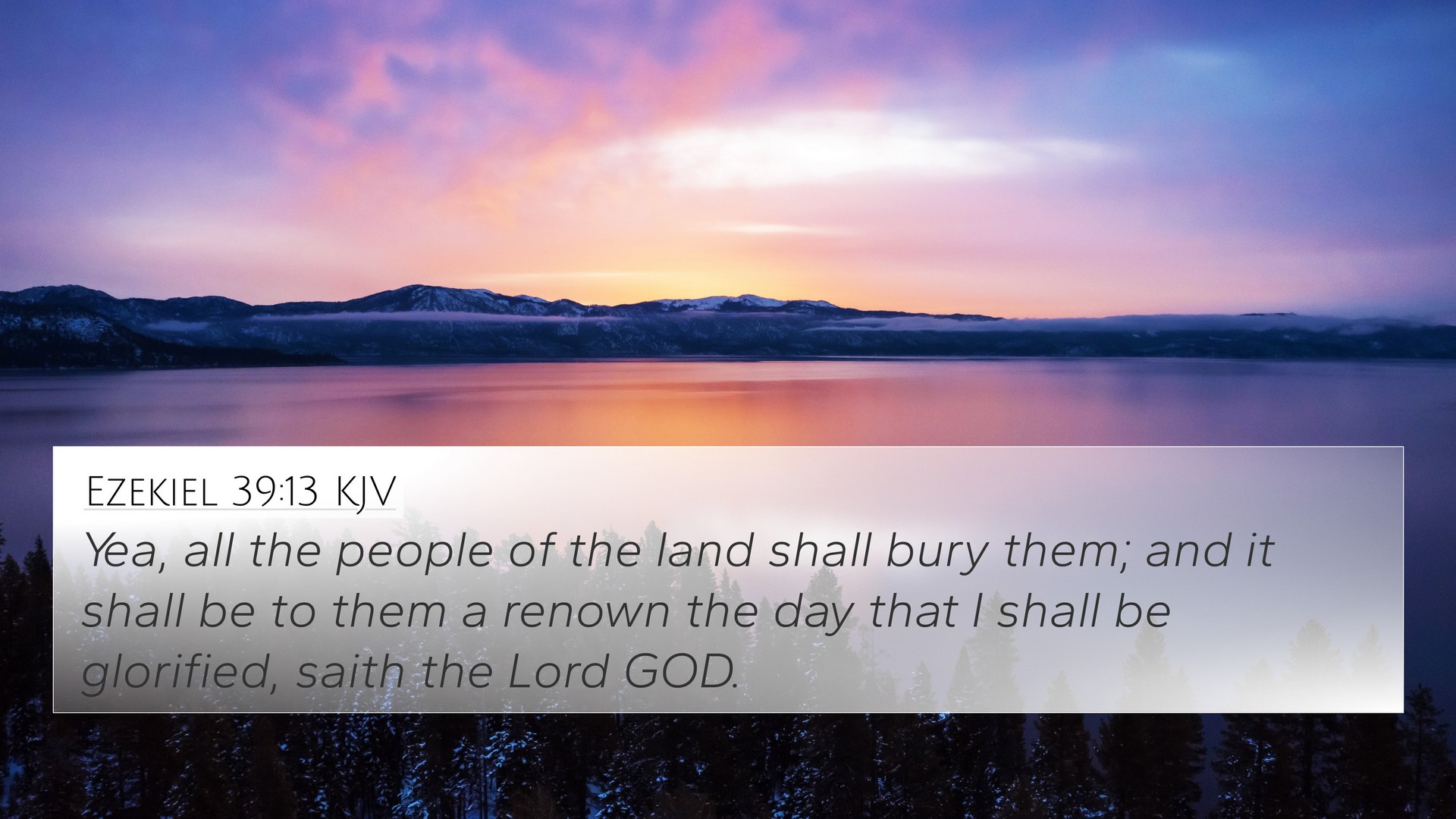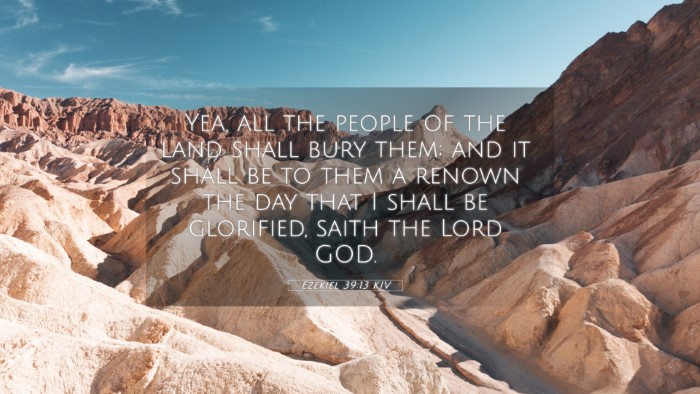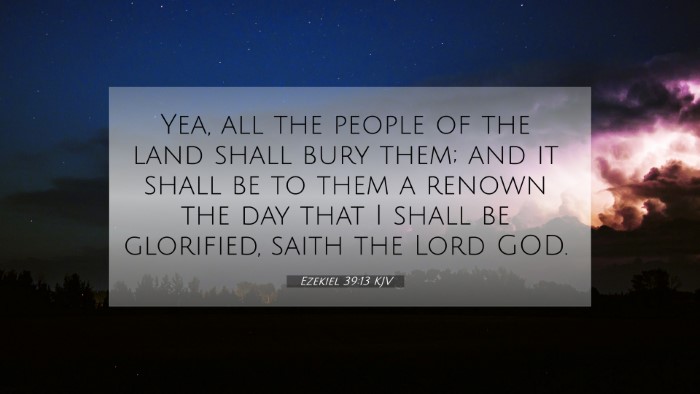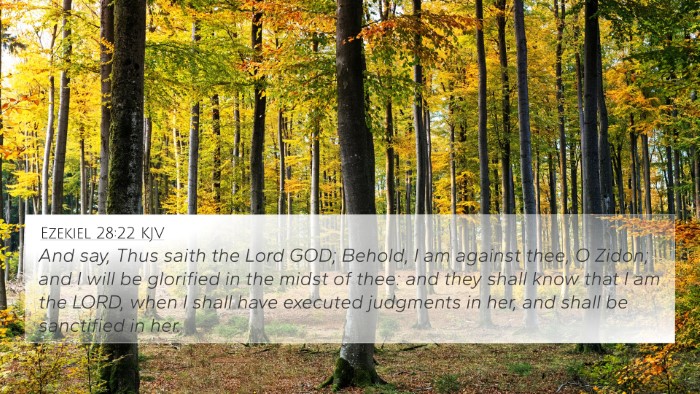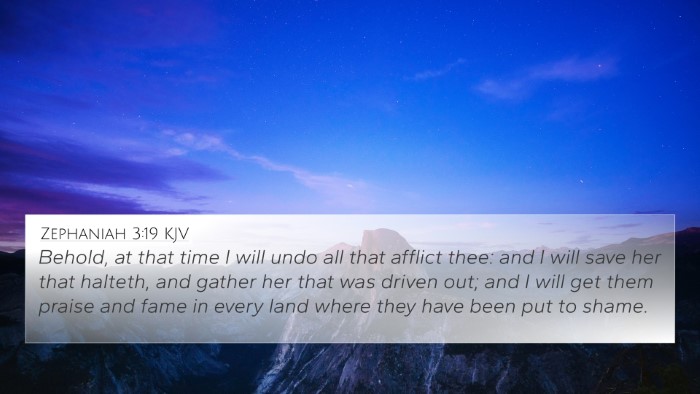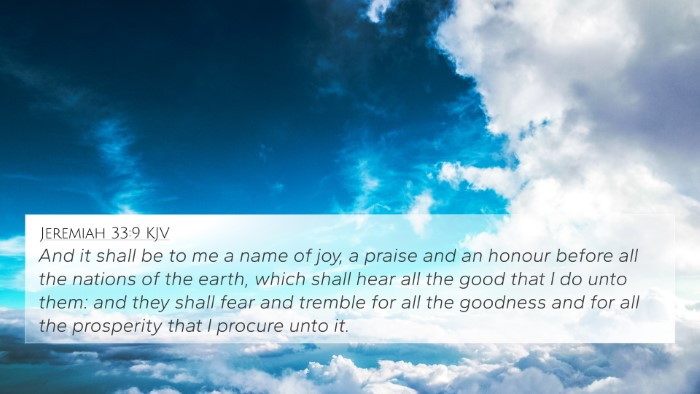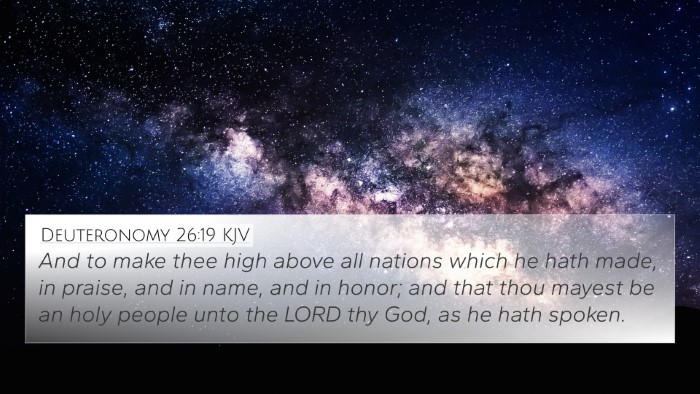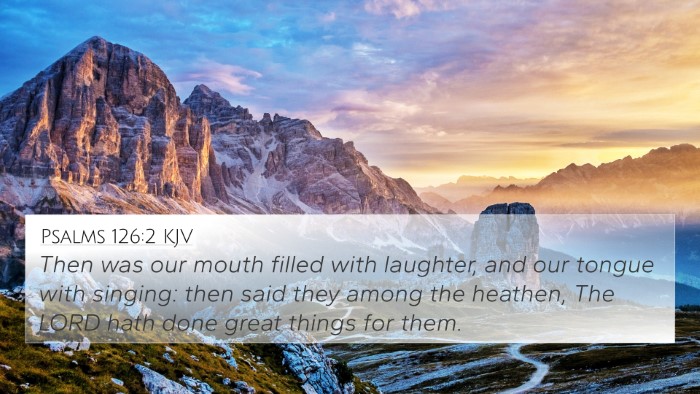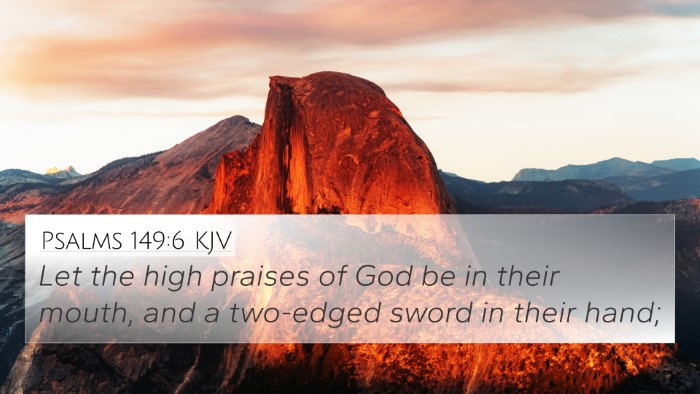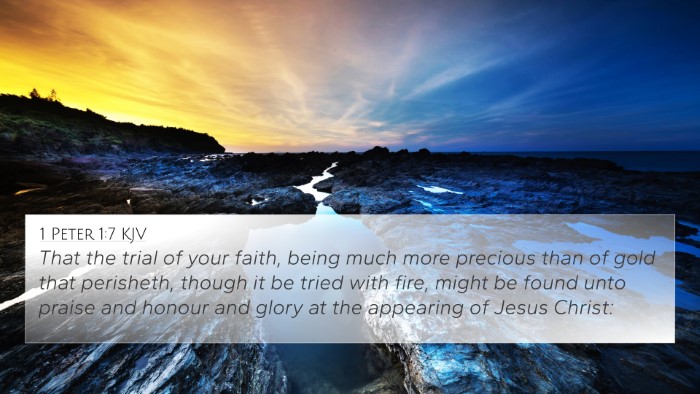Ezekiel 39:13 - Verse Meaning and Interpretation
Ezekiel 39:13 states: “Yea, all the people of the land shall bury them; and it shall be to them a renown the day that I shall be glorified, saith the Lord God.” This verse encapsulates the significance of divine judgment and restoration, highlighting God's glory revealed through His actions.
Summary and Insights
This verse is a part of a prophetic narrative where God promises the restoration of Israel and emphasizes his sovereignty over the nations. The act of burying the fallen enemies of Israel symbolizes more than just physical burial; it represents the completeness of judgment and the purification of the land.
Public Domain Commentary Insights
- Matthew Henry: He points out that the act of the people burying the remnants of their enemies signifies a moment of triumph for Israel. The glory of God is manifested as the people recognize and celebrate His deliverance.
- Albert Barnes: He comments on the renown that this event brings to God, showing how the acknowledgment of God’s power will lead to both national and personal recognition of the divine authority.
- Adam Clarke: Clarke stresses the communal aspect of the burial, suggesting that it brings people together in worship and serves as a reminder of God’s faithfulness to His promises.
Theological Significance
The theological ramifications of Ezekiel 39:13 highlight a few key issues:
- Divine Judgment: The passage speaks to God's control over its creation and the eventual justice served against evildoers.
- Restoration: It serves as a precursor to the restoration of Israel, emphasizing hope for the future.
- Recognition of God: Recognition and glorification of God align closely with prophetic themes in Scripture, encouraging believers to reflect on God’s might and sovereignty.
Related Bible Cross-References
To enrich your study, consider the following Bible cross-references that connect with Ezekiel 39:13:
- Isaiah 26:21: Emphasizes God's judgment upon the earth.
- Revelation 19:17-18: Describes a great supper of God, similar to the victor’s feast after battle.
- Ezekiel 39:12: Talks about the people of Israel burying the slain, echoing the communal aspect of burial in our verse.
- Zechariah 14:1-2: Discusses the gathering of nations against Jerusalem, emphasizing divine intervention.
- Jeremiah 25:33: Refers to the slain of the Lord being found throughout the land, connecting to God's judgment motif.
- Matthew 24:27: Illustrates the context of divine revelation, akin to glory being seen by all.
- Ezekiel 36:33-36: Talks about God’s promises of restoration and cleansing after divine judgment.
Comparative Bible Verse Analysis
Understanding Ezekiel 39:13 as part of a larger narrative helps the reader see connections throughout the Bible. Here, examining thematic elements such as judgment, burial practices, and national restoration can provide a deeper insight into God's character and His workings within historical contexts.
Inter-Biblical Dialogue
This verse, alongside those listed above, invites a more detailed cross-reference analysis. By engaging in cross-referencing Bible study methods, one can trace how the themes of judgment and restoration resonate throughout scripture, especially through the prophecies and New Testament revelations.
Utilizing Bible Cross-Reference Tools
For those interested in delving deeper into the connections between Bible verses, utilizing resources such as a Bible concordance, cross-reference guides, and comprehensive Bible cross-reference materials can be invaluable. These tools can help illuminate the intricate tapestry of biblical themes and narratives.
Finding Cross-References in the Bible
To discover further connections between Ezekiel 39:13 and other scriptures, consider the following methods:
- Identify thematic similarities between verses.
- Examine biblical narratives within historical contexts.
- Utilize cross-reference Bible study techniques to find related passages.
Conclusion
Ezekiel 39:13 serves not only as a statement of God’s judgment and Israel's restoration but also as a reminder of the hope found in God’s promises. By linking this verse with others in scripture, we gain a fuller understanding of its implications and themes. The collective impact reveals a hopeful narrative of renewal, glorifying God’s sovereign plan.
